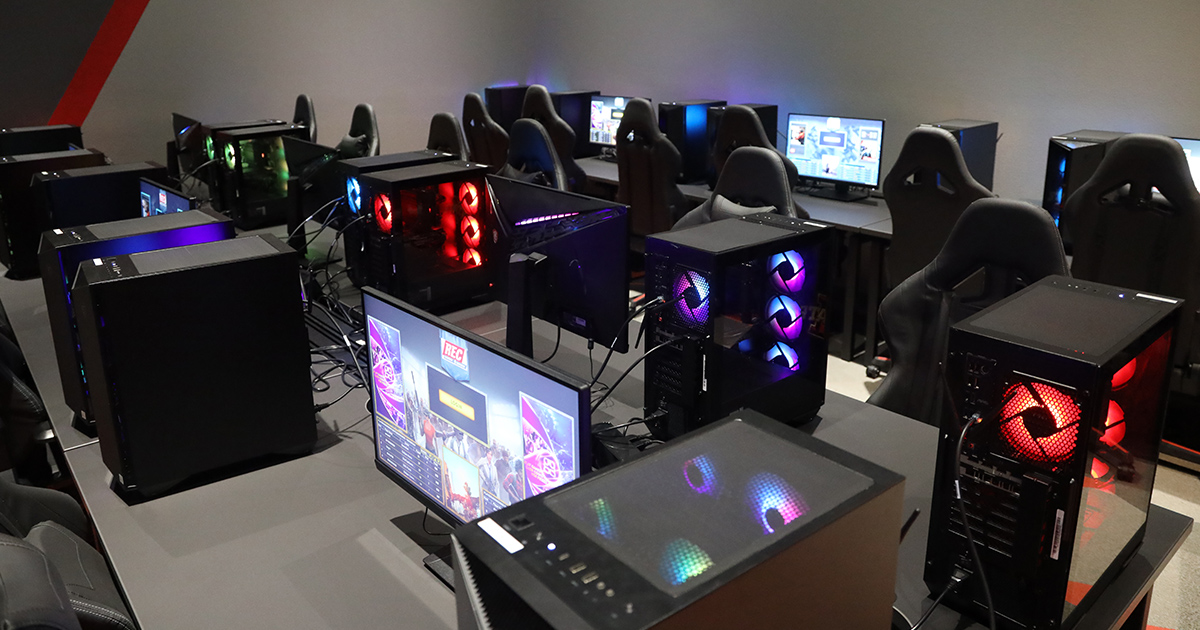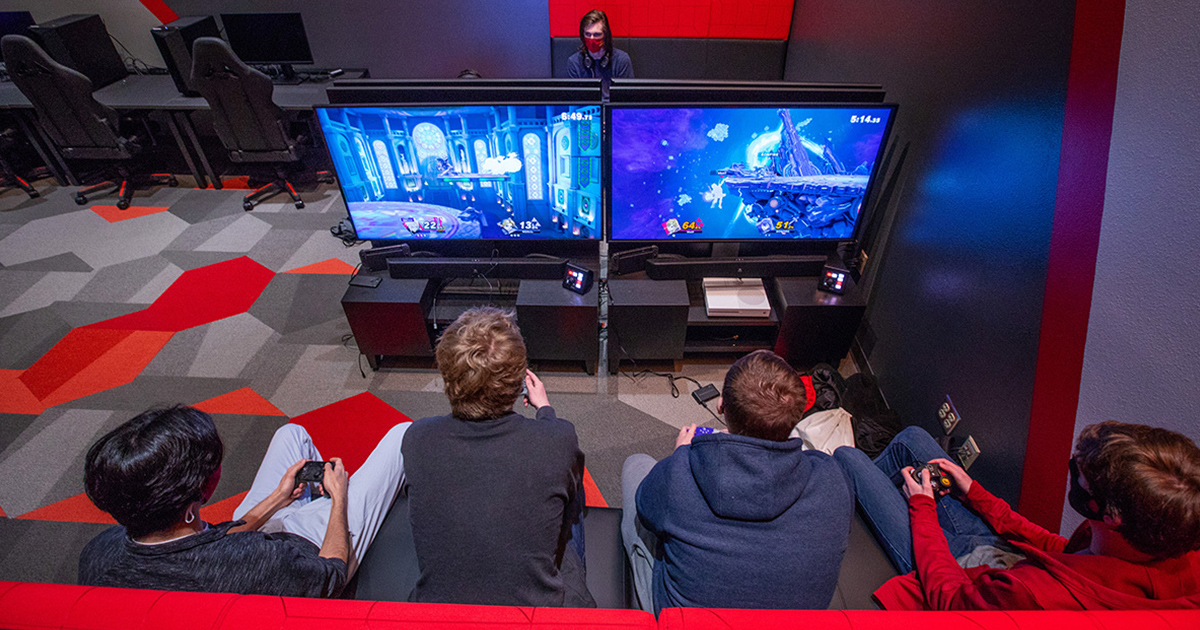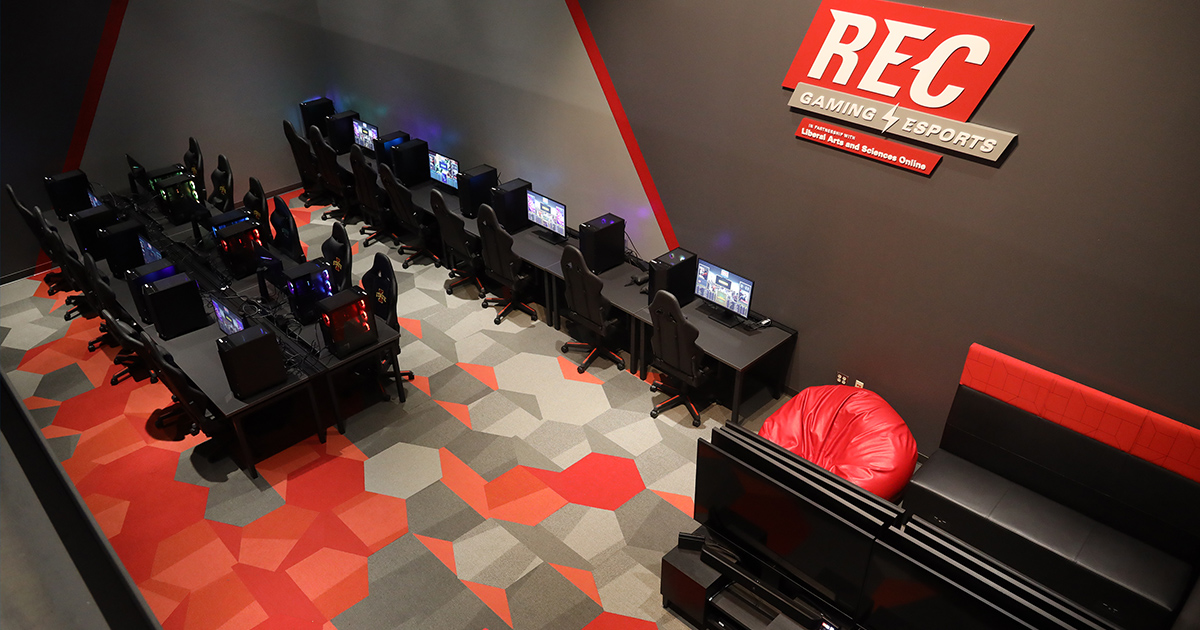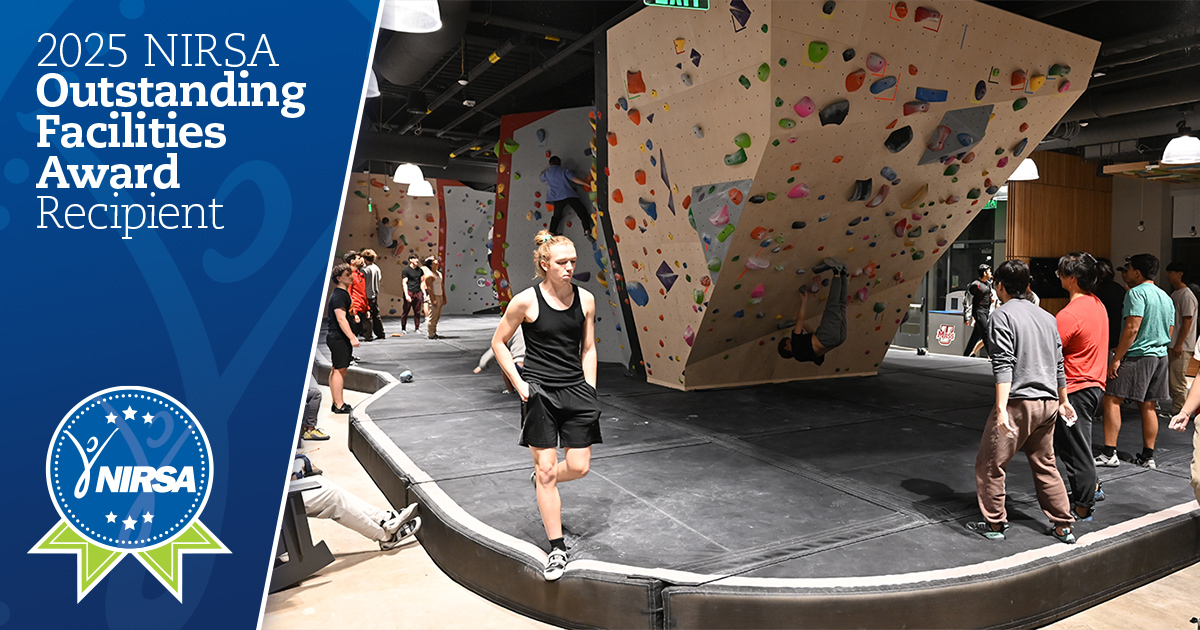Iowa State University Recreation Services launched its esports program during the fall of 2018. What started with a straightforward conversion of the campus gaming club into a sports club has now become an expansive program offering a dedicated gaming space that is open to the entire campus community. The COVID-19 pandemic delayed the opening of ISU’s gaming and esports room as well as reduced its capacity to 50%, but the space did open to the campus community in the spring of 2021.
Assessment data gathered during the esports program’s infancy helped Recreation Services determine that there was a strong desire for this kind of space on campus. Given the success of some early intramural esports tournaments, “we began work on converting two squash courts into a dedicated gaming space during the fall of 2019,” explains Jason Vlastaras, Associate Director-Programs at Iowa State University.

ISU’s gaming and esports room
ISU Recreation Services has partnered with the College of Liberal Arts and Sciences to create a space consisting of 33 desktop stations, four gaming console stations, and a private area for esports teams to practice and compete. Beginning in the fall of 2021, this space will also be used for game design research.
For schools looking to start their own esports programs, Jason recommends starting off by identifying stakeholders on campus: “Is there a gaming club on campus? Is there an academic department you can partner with?” He stresses that it’s important to understand the desired end goal of your esports program. He asks, “Are you looking to provide opportunities or resources to the competitive esports teams that may or may not be on your campus? Are you looking to just capture casual gamers on campus?” Understanding your objectives will help you develop the right kind of esports program for your campus. Jason also recommends that schools include their IT departments in planning conversations as early as possible since the logistical support will prove invaluable.

“Don’t feel like you need to be an expert in gaming or computers,” says Jason. “Find the experts on your campus and invite them in. You’d be surprised at how many people on campus have an interest in gaming.”
Stay current with esports trends
Engaging with NIRSA peers—like Jason Vlastaras—will help you connect with new segments of your student body as well as keep your esports programs at the forefront of trends.
Join esports leaders from across the Association for two days of focused learning and networking around collegiate esports offerings—register today for the NIRSA Collegiate Esports Virtual Institute. Members save $70-100 on individual registrations, and bundle pricing is available for this online learning opportunity.
- Visit the NIRSA website to learn more about this event or contact a member of the Professional Development Team at NIRSA HQ.







